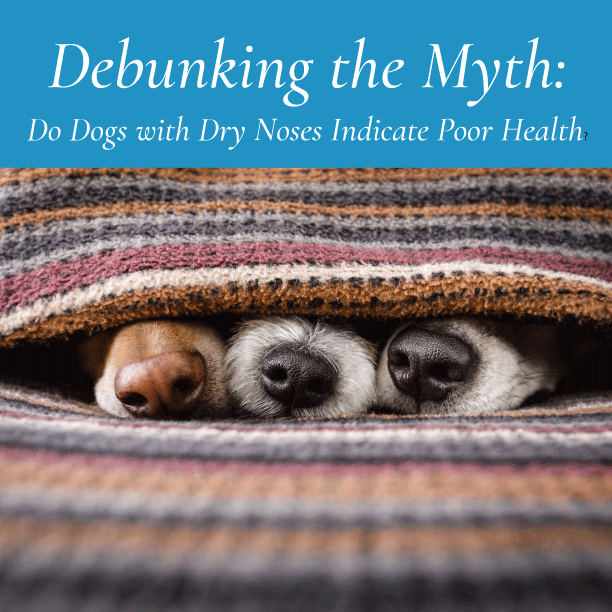One of the common beliefs surrounding our furry companions is that a dry nose is a sign of ill health in dogs. Many pet owners have been led to believe that a wet nose is an indicator of a healthy dog, while a dry nose signals an underlying health issue. However, is this notion really accurate? In this blog post, we aim to debunk the myth and shed light on the truth about dogs and their dry noses.
The Anatomy of a Dog's Nose:
To understand the significance of a dog's nose, it's important to consider its anatomy. Dogs possess a specialized olfactory system that enables them to detect scents far beyond our capabilities. The surface of their nose is covered with moist tissues, which aid in capturing and processing odors. This moistness is attributed to a thin layer of mucus secreted by the nasal glands, contributing to the belief that a wet nose indicates a healthy dog.
Exploring the Dry Nose Phenomenon:
Contrary to popular belief, a dry nose does not necessarily indicate poor health in dogs. Various factors can contribute to a dog's nose being dry at different times:
- Environmental Conditions: Just like humans, dogs' noses can dry out due to external factors such as low humidity levels, exposure to heat, wind, or sunlight. Dry indoor environments, especially during winter, can also contribute to dry noses.
- Sleep and Inactivity: Dogs tend to have drier noses when they wake up from a nap or after long periods of rest. This is a normal occurrence and not a cause for concern.
- Age and Breed Variations: Older dogs and certain breeds may naturally have drier noses compared to others. The thickness of the nasal tissue can vary, affecting the amount of moisture on the nose's surface.
- Licking Behavior: Some dogs have a habit of frequently licking their noses, which keeps the surface moist. If a dog momentarily stops licking, the nose may temporarily appear dry.
When a Dry Nose Indicates Potential Concern:
While a dry nose alone is usually not a cause for alarm, there are instances when it might indicate an underlying health issue. Consider contacting a veterinarian if your dog's dry nose is accompanied by the following symptoms:
- Cracking or Flaking: If the dryness progresses to cracking, bleeding, or flaking of the nose's surface, it could be a sign of a skin condition or dermatitis, requiring medical attention.
- Changes in Behavior or Appetite: If your dog's dry nose is accompanied by a loss of appetite, lethargy, excessive thirst, or any other behavioral changes, it could indicate an illness, and a vet visit is recommended.
- Nasal Discharge or Sneezing: If your dog has a dry nose accompanied by nasal discharge, sneezing, coughing, or difficulty breathing, it might be a sign of an upper respiratory infection or allergies.
The belief that a dog's dry nose signifies poor health is a myth that needs to be debunked. While a moist nose is generally considered healthy, occasional dryness is normal and can be influenced by various factors, such as the environment, activity level, age, and breed. It's crucial to look at the overall health and behavior of your dog, rather than solely relying on the moisture level of its nose. If you notice any concerning symptoms or changes in your dog's well-being, consulting a veterinarian is always recommended to ensure your furry friend receives the appropriate care and attention.

